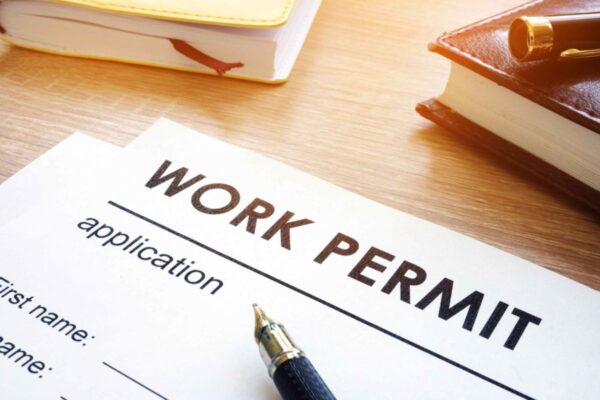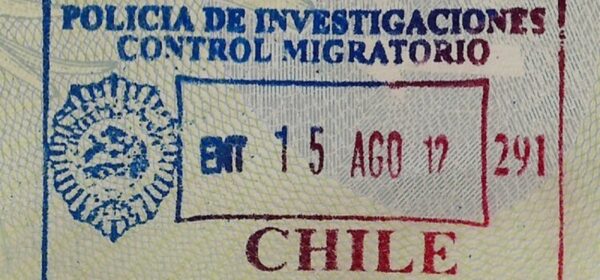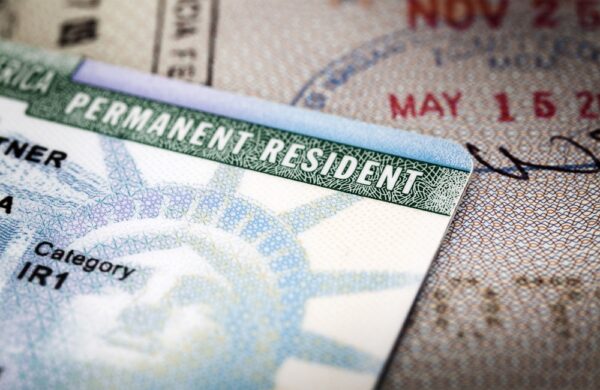Singapore is a dynamic business hub in Southeast Asia, attracting professionals from various industries. It's renowned for its incredible infrastructure, business-friendly environment, and efficient immigration processes. Additionally, the availability of different work permits in Singapore, combined with a strong legal framework, makes it an attraction for global companies and startups.
With a highly skilled workforce, an excellent community, and a stable political climate, Singapore is a place where business blossoms. It provides endless opportunities to grow and thrive in the global market.
If you are a foreigner interested in working in Singapore, it's important that you pick the right work permit. It will save you many headaches, like dealing with compliance issues, hefty fines, or even being barred from working in the country. We will discuss everything you need to know about the different work permits in Singapore.

What is a Work Permit in Singapore?
A work permit is an official document that gives foreign employees the opportunity to work legally in Singapore for a certain period. The government regulates who can work, in what jobs, and under what conditions. Work permits usually require specific criteria, such as age, qualifications, job type, and salary, that both the employee and employer must meet.
As a foreigner looking to work in Singapore, you'll need a work permit or pass legally. The type of permit you need depends on your skills, salary, and the job you're aiming for.
Let's say you're a professional who wants to work in Singapore. You can apply for the employment pass. The Employment Pass (EP) is for higher earners and degree holders, while the S Pass caters to mid-level skilled workers. If you're into specialized or manual work, there's the Work Permit for foreign workers, which usually applies to sectors like construction, manufacturing, and services. Overall, Singapore's work permit system is designed to attract talent and skilled workers globally while balancing the needs of the local workforce.
There are different categories of work permits in Singapore, and understanding each one will help you make the right choice for yourself. In addition, knowing the details of these permits helps you plan better for your career or business growth. So, whether you're a job seeker or an employer, getting familiar with Singapore's work permit process is crucial to avoid unwanted issues.
Work Permit for Professionals in Singapore
1. Employment Pass (EP)
The employment pass is a work permit for foreign professionals who want to work in Singapore and contribute to its blossoming economy. These professionals include managers, human resource professionals, executives, and specialists.
The EP is granted by the Ministry of Manpower (MOM), a government body that ensures legal employment in Singapore.
This process starts with the employer sending an application to the Ministry of Manpower (MOM) with all the needed documents.
Whether an Employment Pass (EP) is approved depends on several factors, one of which is the applicant's salary. An applicant aiming for an EP must meet a salary criteria of $5,000 a month (or $5,500 for financial services).
Another qualification is that you must have a good university degree, specialized skills, or relevant work experience. The EP is one of the most sought-after passes for those in higher-skilled positions. If you have these qualifications, you should give it a shot.
If you're curious about the Industries that commonly require the Employment Pass, you should consider sectors like finance, IT, healthcare, engineering, and education. These industries often look beyond local talent to bring in professionals with unique qualifications, advanced knowledge, and international experience to bring growth to their organizations.
The process starts with the employer sending an application to the Ministry of Manpower (MOM) with all the needed documents. As a first-time candidate, your employment pass can last up to two years after a successful application and can be renewed for another three years upon expiration.
2. Personalized Employment Pass (PEP)
One important thing to know about personalized employment passes is that they are issued only once and are Valid for up to 3 years. Even though they are issued once, you can switch to an employment pass or S pass if you want to continue working in Singapore.
This pass is a more flexible version of the regular Employment Pass, offering more job flexibility. It's a pass for high-earning employment pass holders or foreign professionals and requires a fixed monthly salary of $22,500.
3. EntrePass
A Singaporean work permit is not only for foreigners who want to work for an employer. You can also use the Singapore EntrePass to operate a business as an entrepreneur or experienced investor.
There are no minimum salary requirements, but applicants must meet specific business spending and local employment criteria over time.
You should also know that some businesses, such as coffee shops, food courts, bars, employment agencies, etc., are not eligible for foreigners. So, before applying for an EntrePass, knowing what businesses or organizations are eligible is essential.
The businesses allowed are venture-based or related to innovative technologies and the tech industry. The EntrePass is not country or nationality-biased, as it is open to everyone of different nationalities.
The following are the requirements for an EntrePass:
- Your passport
- A business plan
- Curriculum vitae
- Past employment testimonials
- Latest financial statement backed by the Accounting and Corporate Regulatory Authority (ACRA).
4. Overseas Networks and Expertise Pass
An overseas network and expertise pass is an excellent option for top talent in various sectors, whether in the arts, Academia and research, sports, or business.
Unlike other work passes, this pass lasts five years for first-time applicants and five years for those renewing. However, if you want this pass, you must earn a fixed minimum monthly salary of $30,000 for the 12 consecutive months leading up to your application date, with no breaks in between.
If you don't meet the salary requirements, your contribution and achievement in your sector will also be significant in your application.
Skilled and Semi-skilled Pass
1. S Pass
This is one of the different work permits in Singapore and is required for mid-level skilled workers who earn a minimum of $3,150 a month. Applicants are evaluated on their qualifications and work experience, and a points-based system that considers salary, education, and age criteria.
Your Employers must agree to a quota and pay a levy for each S Pass holder they hire monthly. The S pass is valid for up to two years, and if your employer or appointed employer agent still needs your service after that, you're eligible to renew your S pass for another three years.
Work Permit for Migrant Workers
This is for foreign construction, manufacturing, marine, process, or service workers with a two-year validity. There's no minimum salary requirement for this work permit category, but strict rules on quotas, levies, and other regulations apply. It is generally for lower-skilled or semi-skilled roles, and workers must come from specific source countries approved by the Ministry of Manpower (MOM).
Workers in this category are only allowed to work for their employer and in a specific occupation specified on their work permit card. This means they can't engage in other businesses or even start one.
2. Work Permit for Migrant Domestic Workers
The authorized person who can apply for this permit is the domestic worker's employer or authorized employment agent. No minimum salary is required, and it lasts up to two years and is also renewable.
For an employer, the criteria for being eligible include the following:
- Must be 21 years and above at the time of application
- They must understand and perform their role as an employer properly.
- Must adhere to the monthly payment levy and provide medical and personal accident insurance for the foreign employee.
- Must not have a record of bankruptcy
For domestic helpers, these are the requirements they must fulfill:
- Must be a female between 23 and 50 years old at the time of application.
- Domestic helpers aged 50 can renew their work permits until they are 60.
- A minimum of 8 years of formal education with a verifiable certificate is required for education qualification.
- They must be from approved countries such as Malaysia, Cambodia, South Korea, Thailand, Sri Lanka, Myanmar, the Philippines, Macau, Hong Kong, India, and Indonesia.
3. Work Permit for Migrant Confinement Workers
This is quite different from domestic workers as this pass is for Malaysians who can help care for a newborn and its mother.
This non-renewable pass does not have a minimum salary range and is valid for up to 16 weeks from the baby's birth.
Criteria for employers include:
- Must be 21 years and above during the application process.
- Must have a newborn under four months.
- Pay an agreed monthly levy.
- Get a work permit for the confinement nanny.
Aside from being Malaysian, other eligibility criteria for confinement Nanny include:
- Must be a female between 23 and 70 years old at the time of application.
- Must work at the employer's residence.
Work Permit for Family Members
Dependant's Pass (DP) and Long-Term Visit Pass (LTVP)
These aren't work passes per se, but they allow EP, PEP, and S Pass holders to bring their family members to Singapore. The Dependent's Pass is for spouses and children, while the Long-Term Visit Pass can cover common-law spouses, stepchildren, or parents.
If family members have to work, they must get a Letter of Consent from the MOM or qualify for an Employment Pass, S Pass, or Work Permit.
If you have a family member with an employment pass in Singapore, you can apply for a dependent and long-term visit pass.
A dependent pass issued by Singapore's Immigrant and Checkpoints Authority (ICA) and MOM is issued to partners who are legally married or unmarried children under 21 of a worker in Singapore with an employment pass and S pass holder.
- Legally married partner
- Spouse of a Singapore Permanent Resident (PR)
- Unmarried dependent children under 21
Certain criteria must be met for foreign workers who wish to bring in their family members, such as having an EP or S pass, a fixed monthly income of $6,000, and $12,000 monthly if they want to bring in their parents. Your Singapore organization must be a Singapore-registered establishment.
Once you meet these requirements, you can get a long-term visit pass for the following people:
- The spouse you are legally married to
- Unmarried children or stepchildren under 21 years
- Unmarried disabled children or stepchildren who are 21 years and above
- Your parents.
- Other family members of a local or permanent resident
- A parent with a child who came to study in Singapore
Students and Trainees
1. Work Holiday Pass
Work holiday pass is one of the different work permits in Singapore, provided for Singaporeans and foreigners. This pass allows international students and young graduates to work in Singapore.
This pass is valid for six months and is not renewable. Students or young graduates must be between 18 and 25 years old to apply.
However, graduates from specific nationalities and government-approved universities are allowed. These countries include Australia, Hong Kong, Germany, the US, New Zealand, Japan, the UK, the Netherlands, Switzerland, and France.
2. Training Work Permit
The training work permit has a six-month, nonrenewable validity and is for eligible unskilled or semiskilled foreign trainees or international students who wish to do practical training in Singapore.
3. Training Employment Pass
This 3-month non-renewable pass is for eligible foreigners or trainees who want to undergo training in Singapore. To apply, you must ensure that your training attachment is related to your course of study.
Other Types of Work Passes
1. Miscellaneous Work Pass
If you're a foreign reporter, religious worker, or journalist who wants to conduct a seminar, conference, workshop, or cover an event in Singapore, you should apply for the miscellaneous work pass. The people inviting you over are responsible for your application, which is valid for 60 days without renewal.
2. Work Permit for Performing Artiste
This permit allows foreign artists to work or perform in public entertainment hubs such as bars, hotels, nightclubs, etc. As a performing artist, this pass is valid for up to 6 months, after which you will wait a year before applying for any work permit.
How to Apply for a Singapore Work Permit
Here is a general guideline for getting a Singapore work visa:
1. The employer or employment agent must submit the application on Singapore's Ministry of Manpower (MOM) website or authorized service centers.
2. The employer must also prepare for the prospective employee's arrival and get the issued work permit.
3. Only Malaysian workers can be in Singapore during the application period. If you're not Malaysian, you should remain in your country of residence until your employer gets your work permit card.
4. Ensure that your passport will not expire anytime soon, as it might cut short your stay in Singapore if it does.
5. If your application requires your fingerprints or photos, you can have them done within a week of your permit being issued.
6. Once in Singapore, your employer or employment agent will direct you to the venue for your card registration. You must go with your original passport, appointment, and notification letter.
Final Thoughts
Understanding the different work permits in Singapore is vital for anyone looking to work or do business there. Each pass, whether the Employment Pass, S Pass, Work Permit, EntrePass, or others, comes with criteria for different workers and industries.
Navigating these options carefully ensures you meet legal requirements, maximize opportunities, and contribute meaningfully to Singapore's diverse workforce.
















